In his garden stood an old sycamore tree, the names of my uncles and aunt carved into its skin. When things began to �change� I was a young boy, young enough that neither hand would meet if I tried to wrap them around that sycamore�s full girth. It was a great tree, strong and unyielding, and from what I remember of that time my grandfather was no different. This was back when a toothbrush was still a toothbrush to him and not, �that thing for my teeth�, and when gramps would tell me how he rescued his dog Junior from the neighbour�s garden:
�They had him tied to a post see,� he would say with forehead gathered in pleats, �by a tatty old piece of rope. His fur had worn around his neck, and in places you could see his skin. It was awful, really awful. Skin and bones�Skin and bones.�
This was back when rope wasn�t, �that thing for tying things�, and way before the story became boring.
During the week he wore blue overalls for work and plaid shirts at weekend. After he retired he kept the same attire. The family should have realised something was wrong then. Instead he had to forget his wallet at the newspaper shop, and leave his car unlocked all night before any suspicion was raised. At first my aunt blamed gramps change on boredom. In the war he was a service engineer. If gramps wasn�t firing a gun he was busy dismantling engines. With no guns in the house he had to resign himself to the latter, thank God. After Nan died of lung cancer, the house smelt less like woodbines and more like swarfega and axel grease. On the kitchen table spark plugs, pistons and manifolds would sit beside Cornish pasties and iced fingers. My mother and aunt would complain all the time that oil and grease had no business alongside food. Gramps would throw them an evil stare and say, �What do you know. You�re women! This is man�s work! Now get out!�
I was later told the doctor gave him something, I don�t know what, to help with his moods. They also performed a memory test. My mother said gramps didn�t remember a damn thing he told him, except that is for the day he rescued Junior.
�Skin and bones,� he told the doc. �Skin and bones.�
One morning he went for the newspaper dressed in his blue work overalls. It was dusk when he got back. The policeman was nice and let me try on his helmet. My mother cried again and so did my aunt. After the policeman left Gramps sat watching television, a little wry smirk across his face. That evening my father took me home and my mother stayed. A couple of days later she came back. It was afternoon and she looked like she�d just got out of bed, her eyes puffy and red. I asked my father what was happening, and he said, �A change. Now go and give your mum a hug.� I did, and while pressed up to her stomach I told her, �Nobody likes change.� She laughed at this and I felt happy I made her happy.
My grandfather�s garden was in silent slumber. Trees were glazed with icing sugar and soapsuds, the lawn a thick white eiderdown. When we arrived for our usual Saturday visit gramps was sat with his feet in a bucket of water. Beside him, men talked over football matches on a portable radio. I looked to my mother for an explanation to why gramps had his feet in the bucket, and she told me he was a fat old fool with very thick toenails.
Every Saturday was the same, we�d arrive and gramps would be sat listening to the radio, his feet in a bucket of water, my mother brandishing a pair of stainless steel nail clippers.
One Saturday he forgot to take off his socks, and by the time the football season finished it was his shoes. My mother would shout at him and he�d just look down at his wet feet as if he never knew. It didn�t take long after that.
�I�ve told you about the time I rescued Junior, right?� This was after they took away his car keys, �just in case�, but way before they bought the commode.
�The people over the road,� he said wistfully, �the ones that had him tied up, their door was made of solid oak. It stood seven feet tall, rotten and chewed up like meat pulp. Five minutes I spent banging on that door. Damn near broke my knuckles in the process.�
He�d hold out his hand so I could see each little pink and white mountain of a knuckle, and I�d shrug.
�No word of a lie, when that big old oak door creaked open I almost fainted. Stood before me was the biggest man I had ever seen, a giant in every sense of the word. He was ten foot tall, shoulders as big as doorway arches, and teeth the size of tombstones�� And so it went on.
He�d left a kettle boiling on the stove the day he went looking for �that thing you hit nails with� in the garage.
When the insurance company paid for a new stove he became angry and locked himself in the bathroom for an hour. By the time he calmed down my uncle Tony, who lived miles away and no one ever saw except for Christmas, had to kick the door in because gramps couldn�t figure out how to get out. All the time he was in there gramps would shout from behind the door how his children had it in for him. �You�ve hidden the keys, you bastards! Where are the keys?!�
We kept telling him no key was needed. �The bolt!� we�d all shout in union. �Turn the bolt!�
He never did.
That evening my mother made us all steak and kidney pie with short crust pastry using the new oven for the first time. The smell brought gramps in from the television. He stood for a while just stroking his chin, looking at the stove like he did his shoes when he put them in the bowl. Finally he turned to me and asked, �Where the hell is my old stove?� I laughed and received a clip around the ear. Mother didn�t find it funny at all.
A couple of days later I was told to stay home because granddad was feeling unwell. When my mother came back from visiting him her eye was all purple and swollen. I didn�t see gramps for some time after that.
The first crocus was in bloom before they let me visit again. He�d lost weight, his hair the colour of breath on a cold winter�s morning. I said hello and he looked at me for a few moments, unsure, and then smiled.
�Are you here to cut my nails?� he asked, and I shook my head. �They�re getting long see, and I can�t find the thing for cutting them.�
I handed him a get-well-soon card I�d made. He threw it on the floor and cussed. My mother picked it up and put it on the television set. �Granddad will read it later, won;t you?� she said to him and he just grunted.
�Did I tell you about the time I rescued Junior from that giant?� he asked once I�d sat down beside him. My mother told him I had heard that story a million times, but I told her I wanted to hear it again. The story of Junior and the Giant was the one thing that had remained loyal to his failing memory, and the one thing that reminded me my grandfather was not completely gone. I needed this story, for it meant the difference between hope and despair.
�Sure I was scared,� he said excitedly. �I�d never seen a real life giant before! I did say there was a�?�
He stopped, allowing each tired old muscle on his face to pull together, his forehead nothing more than an unmade bed of grey skin. He began looking at the floor, the ceiling and the walls with Toby jugs and brass horseshoes. Mum said, �Giant�, and he scowled at her and told her to get out. She didn�t. She just sat there, her eyes already varnished with tears.
�What was I saying? That�s right: Junior. Junior was all I could think about. How could I� I mean, how cold and how hungry he must have been. So I told that big guy, I said you either hand him to me, or that would be... Well, I wont repeat what he said, but it wasn�t nice. I told you he was big, right?� I just nodded my head.
�Guess he didn�t like my tone. Grabbed me, he did. I looked down and his hands were like two balls of twisted metal, all whatsit? You know? Brown. And his breath - well, his breath smelt like old socks and sprouts.�
And there was I, giggling behind a hand no bigger than a leaf on that mighty sycamore stood swaying in the garden.
�It is funny isn�t it?� he said, and then he began laughing. So did my mother. We were all laughing.
Suddenly he stopped. �What was I saying?�
�A giant�, I said.
�A giant?�
�And Junior�, I said.
�What?�
�Remember?�
He looked out through the patio doors, towards that old sycamore. He never looked so frail to me as he did right then.
I stood up and sat on the arm of his chair and asked him if he remembered? How he told that giant he wouldn�t budge until Junior was safe, even if it meant fighting for him. And that he did fight him for him. �People gathered on the street watching, neighbours at first, then the whole town.
�You were half his size, remember? But you kept going. You wouldn�t stop until Junior was safe. Don�t you remember?�
My mother called out my name.
�Two days you both fought in the street�, I said. �And on the third day the giant was too tired to carry on and Junior became yours. Don�t you remember? You became a local hero, and the giant - he became a good friend of yours. He admired you, my granddad. Even helped plant that big old sycamore out in the garden.�
The wind rapped on the patio doors as if scolding me for tormenting his sick fragile mind. After it grumbled through the chimney I couldn�t hear anything but my mother crying. When gramps turned back from that sycamore his eyes were sad, lost in fear and confusion.
�Are you here to cut my nails?� he asked.
�No gramps. No, I�m not.�
Everything was dying. Outside trees were undressed, their wiry black figures leaning against orange skies. My grandfather�s lawn was a pool of red and brown. It was beautiful. Inside every eye was shrink-wrapped, each body dressed in black, each word a whisper. As the afternoon grew old, men stood outside smoking. They too talked in whispers.
With the leaves beneath me respectfully shushing my every step, I left the men and went to say goodbye to that old sycamore, the one planted by a giant, and the one beside which Junior is now buried.
I remember the tree looking smaller: more vulnerable. I remember the wind busying itself by testing each branch, bending them this way and that. I saw a knot that reminded me of an elephant�s eye, and a bough that reminded me of an arm. I ran my hand across its bark and kicked at each exposed root as if they were dead snakes.
A tall branch with four fingers swayed heavily in the strong wind. On the end was a leaf, the very last autumn leaf reaming on the tree. I watched the wind tug furiously for possession. I watched the wind almost snap that branch in two to rid that leaf of its place. But the little brown and yellow leaf refused to budge. Against all forces it remained firm. It was then I began to cry.
Before my father called for me, I hugged that tree one last time, feeling for the first time the tips of each finger.
When I let go, I looked up, and the leaf was gone.
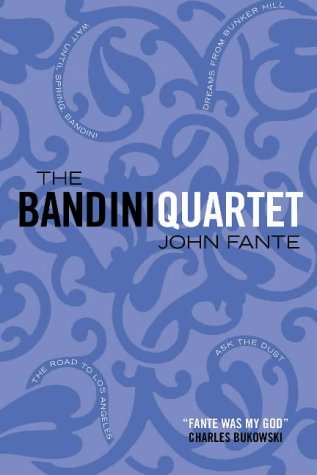 JOHN FANTE
JOHN FANTE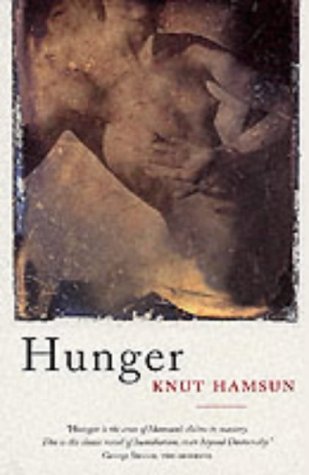 KNUT HAMSUN
KNUT HAMSUN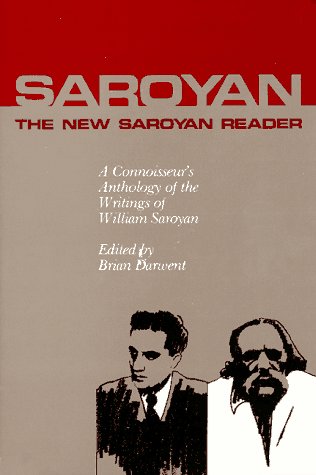 WILLIAM SAROYAN
WILLIAM SAROYAN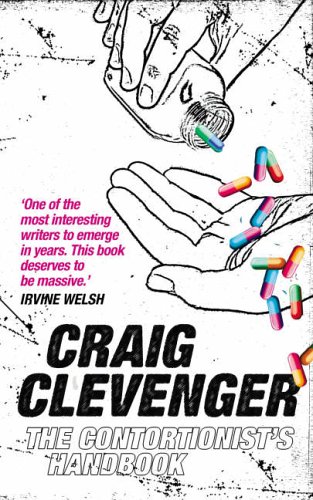 CRAIG CLEVENGER
CRAIG CLEVENGER WILL CHRISTOPHER BAER
WILL CHRISTOPHER BAER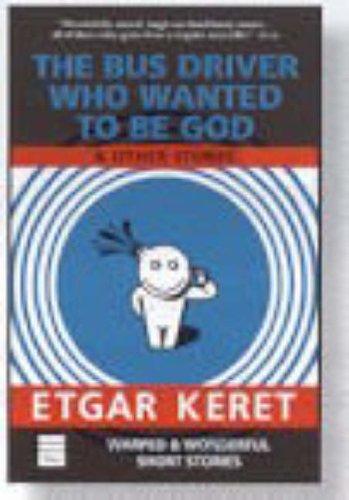 ETGAR KERET
ETGAR KERET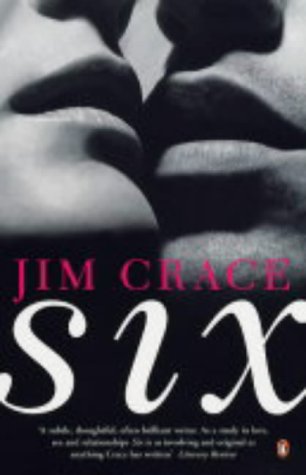 JIM CRACE
JIM CRACE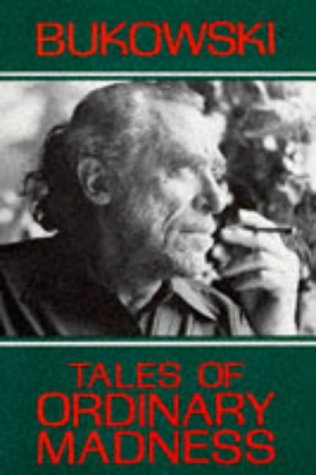 CHARLES BUKOWSKI
CHARLES BUKOWSKI
